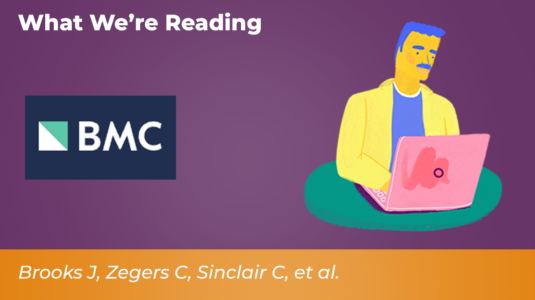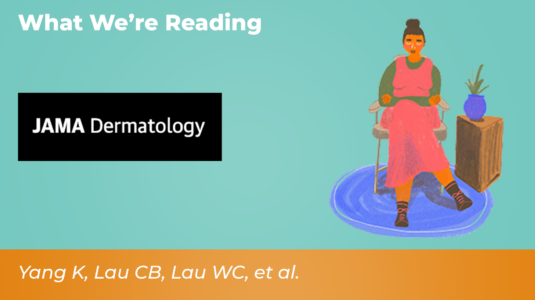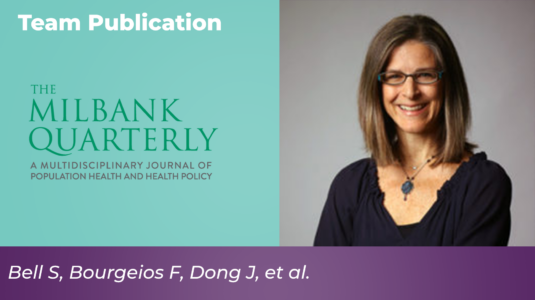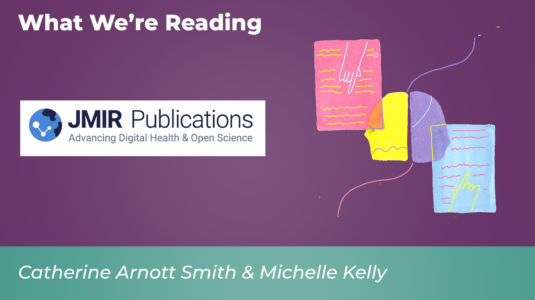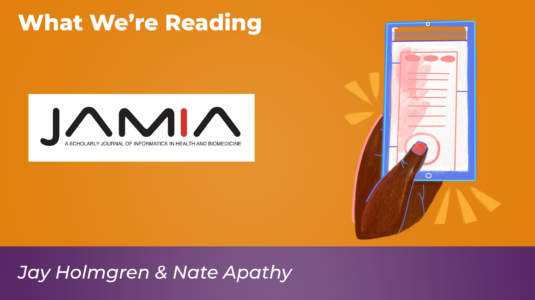Patients with cancer and their cancer care teams want the ability to tailor information release based on individual preferences and goals. Understanding how to tailor implementation of the Information Blocking Rule is essential for retaining its benefits and minimizing unintended harm for patients with cancer.
Studies
Patient perspectives on clinic note transparency within dermatology
Research evaluating patient experiences with accessing their dermatology clinic notes is currently limited. In this survey study, we aimed to assess dermatology patient experiences with viewing online medical records and sought to identify areas for improvement.
Patient identification of diagnostic safety blindspots and participation in “good catches” through shared visit notes
A new study from OpenNotes shows patients and families who read open notes hold unique insights and can catch potential safety hazards that are difficult for clinicians or organizations to see.
In anticipation of sharing pediatric inpatient notes: Focus group study with stakeholders
Distinct themes identified as benefits of pediatric inpatient Open Notes for parents emerged from all the 5 focus groups. These themes were communication, recapitulation and reinforcement, education, stress reduction, quality control, and improving family-provider relationships. Challenges identified included burden on provider, medical jargon, communication, sensitive content, and decreasing trust.
Assessing the impact of patient access to clinical notes on clinician EHR documentation
Using a national, longitudinal data set consisting of all ambulatory care physicians and advance practice providers using an Epic Systems EHR, we used an interrupted time-series analysis to evaluate the immediate impact of the policy change on clinician note length and time spent documenting in the EHR. We found no evidence of a change in note length or time spent writing notes following the implementation of the policy, suggesting patient access to clinical notes did not increase documentation workload for clinicians.
Patient characteristics and utilization of an online patient portal in a rural academic general internal medicine practice
In a rural academic internal medicine clinic, female patients, aged 41–65, non-smokers, and those without certain chronic conditions were more likely to use an online patient portal. Recognizing and addressing barriers to patient portal use is essential for robust and sustained patient portal uptake and ensuring that the benefits of portal use are equally distributed among all patients.
Lessons Learned from OpenNotes Learning Mode and Subsequent Implementation across a Pediatric Health System
The 21st Century Cures Act has accelerated adoption of OpenNotes, providing new opportunities for patient and family engagement in their care. However, these regulations present new challenges, particularly for pediatric health systems aiming to improve information sharing while minimizing risks associated with adolescent confidentiality and safety.
Negative Patient Descriptors: Documenting Racial Bias In The Electronic Health Record
We found that Black patients at an urban academic medical center had disproportionately higher odds of negative patient descriptors appearing in the history and physical notes of their EHRs compared with White patients. This difference may indicate implicit racial bias not only among individual providers but also among the broader beliefs and attitudes maintained by the health care system. Such bias has the potential to stigmatize Black patients and possibly compromise their care, raising concerns about systemic racism in health care.
Attitudes, experiences, and safety behaviours of adolescents and young adults who read visit notes: Opportunities to engage patients early in their care
Today’s adolescents and young adults have grown up immersed in technology, but their interest in and benefit from reading their care notes online is not well understood. In our study, the majority of AYA read notes and rated them as extremely important for several engagement and safety behaviours. Although a similar proportion of AYA reported definite or possible errors in their notes as adults, fewer spoke up about them, citing knowledge and cultural barriers like fear of conflict. Taken together, these findings support initiatives that encourage AYA to read notes and share concerns. Efforts that include note-reading may help transition patients from paediatric to adult care with greater autonomy, activation and safety partnership.
Patients Contributing to Visit Notes: Mixed Methods Evaluation of OurNotes
OurNotes interests patients, and providers experience it as a positive intervention. Participation by patients, care partners, clinicians, and electronic health record experts will facilitate further development.
